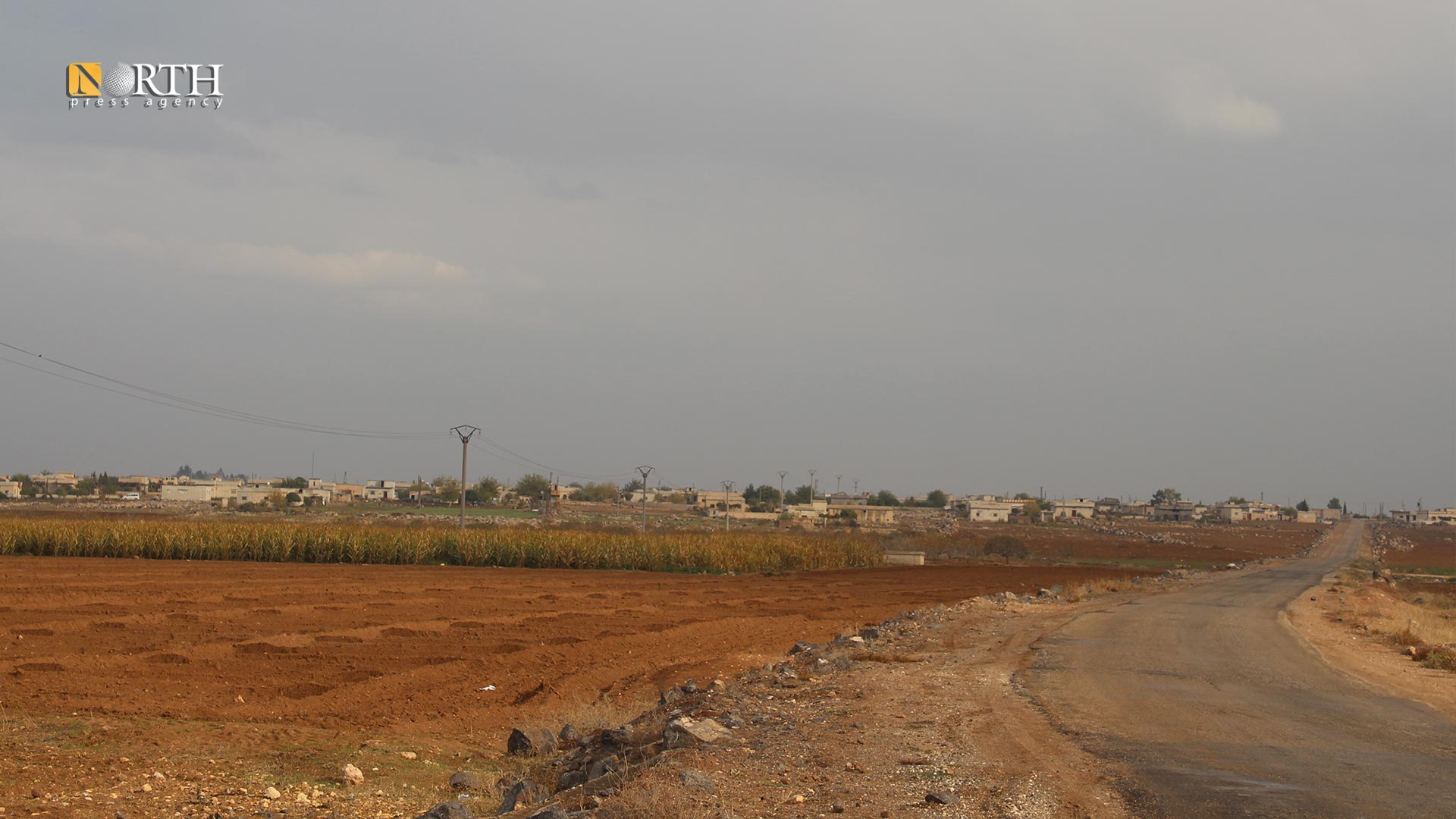KOBANI, Syria (North Press) – Although it is time to be harvested, Ali cannot harvest his maize crop due to the ongoing Turkish military escalation on eastern and western countryside of the city of Kobani, northern Syria.
Ali Herro, 42, from the village of Koran in the east of Kobani, has several acres planted with maize that he left to be rotten and eaten by birds because he does not dare to reach his land due to the Turkish attacks.
Farmers of the villages of Kobani, adjacent to border strip, fear harvesting their crops and cultivating their lands due to the repeated Turkish shelling of their villages.
Herro said that he repeatedly tried to reach his land, but every time, the Turkish forces shoot at him. So that, he decided not to go to his land and wait for de-escalation.
The farmer bemoans the wheat seed and fertilizer he previously bought, preparing for cultivating his land, as they will spoil because he cannot seed them due to the Turkish escalation.
Herro added that he could not harvest his maize crop and plow his land because “any move by civilians or their vehicles will be a targeted by the Turkish artillery.”

Not harvested olive trees
On November 27, Turkish artillery targeted posts of Syrian government forces in villages west of Kobani with several shells.
On November 26, the Turkish forces targeted the villages of Chareqli and Tel Sha’ir, west of Kobani, with five artillery shells.
In light of the ongoing Turkish bombing, Omar Khalil, 65, found himself forced to leave his maize crop on streets after harvesting it.
Khalil said, “If animals did not eat the crop, it has been definitely rotten after absorbing rain water or it has been washed away by rains.”
After harvesting them, maize farmers usually spread corn kernels on the streets and roads to be dried.
Although harvesting time is about to be done, Khalil, who is from the village of Koltab, east of Kobani, has not also harvested his olive crop, and went out of his village to survive his family.
The farmer left his 4.000 olive trees not harvested. However, he is thinking about returning to the village to harvest the crop, but he delays it whenever he hears about targeting civilians by the Turkish artillery.
Residents of Kobani depend on cultivation as a main source of livelihood, as fruit trees and rain-fed agriculture are popular in the area.
Since November 20, intense and wide spread aerial operation is being carried out by the Turkish forces against north and northeast Syria which has claimed tens of lives and destroyed facilities and infrastructure along the whole border strip from Aleppo northern countryside in the northwest up to Derik (al-Malikiyah) in the northeast.
The violent Turkish strikes have halted service at the natural gas facility and power plant in the vicinity of
On November 26, 187 Syrian organizations condemned the Turkish military escalation against north and northeast Syria and demanded UN exert pressure to stop the attacks.
On November 24, Abd Hamed al-Mehbash, co-chair of Autonomous Administration of North and East Syria (AANES) Executive Council, said Turkey targeted infrastructure to force people to flee and evacuate the region.
Uncultivated lands
Although Ahmad Sheikho, 52, a resident of the village of Chareqli, west of Kobani, was optimistic because it seemed to be rainy this winter. However, he did not find an opportunity to cultivate his rain-fed land due to the Turkish bombing.
“This winter looks promising, but the Turkish bombing prevents us of cultivating our lands. This will deprive us from getting benefits of the season,” Sheikho said.
Villages adjacent to the border strip, west and east of Kobani, are subjected to the Turkish bombing on a daily basis. Sheikh expects a “humanitarian catastrophe” for the residents of these villages in case the shelling continues, as they were prevented from cultivating their lands or left their crops to be rotten.
Sheikho pointed out that the Turkish forces deprive the residents of these villages even of drinking water, as reservoir is nearby the border and the workers who run it do not dare to go there to pump water, fearing that they may be targeted by the Turkish forces.

